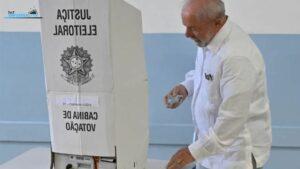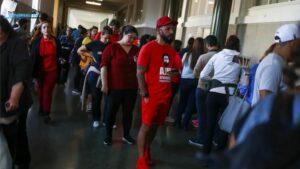
Brazilian voters headed to the polls Sunday morning for the run-off of a polarized presidential election, with the incumbent president vowing to protect conservative Christian values and the ex-president promising to return the country to a more prosperous past.
The run-off developed as a close rivalry between right-wing President Jair Bolsonaro and his political opponent, former President Luiz Inacio Lula da Silva. They are two famous and divisive political figures who evoke passion as much as hatred.
The vote will reveal whether the world’s fourth largest democracy will remain on the path of right-wing politics or return the former leftist president to the presidency and, in the latter case, whether Bolsonaro will accept defeat.
More than 120 million Brazilians are expected to vote, and because voting is conducted electronically, the final result will usually be available within hours after polls close in the late afternoon.
Most opinion polls point to the lead of da Silva, known globally as Lula, although political analysts agree the race has grown more tense in recent weeks.
Da Silva seemed to be on his way to an easy win, igniting nostalgia for his presidency (2003-2010), in which the Brazilian economy was booming and welfare programs helped tens of millions join the middle class.
In the first round, held on October 2, da Silva came first among 11 candidates with 48 percent of the vote, while Bolsonaro came second with 43 percent, showing that opinion polls significantly reduced the president’s popularity.
Many Brazilians support Bolsonaro’s defense of conservative social values. His popularity was boosted by massive government spending.
In Brazil, the candidates who lead the first round of elections move into the run-off.
Political scientist Rodrigo Brando, however, said the campaign was so atypical that Bolsonaro’s victory could not be ruled out, the president had the backing of the governors of the three most populous states, and politicians loyal to him scored major victories in congressional races.



